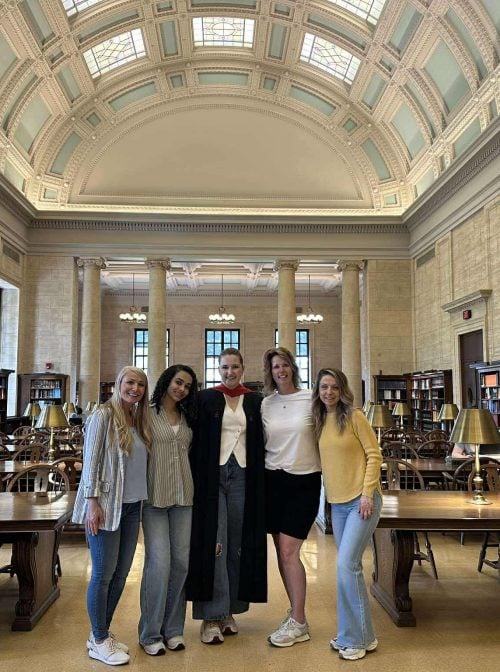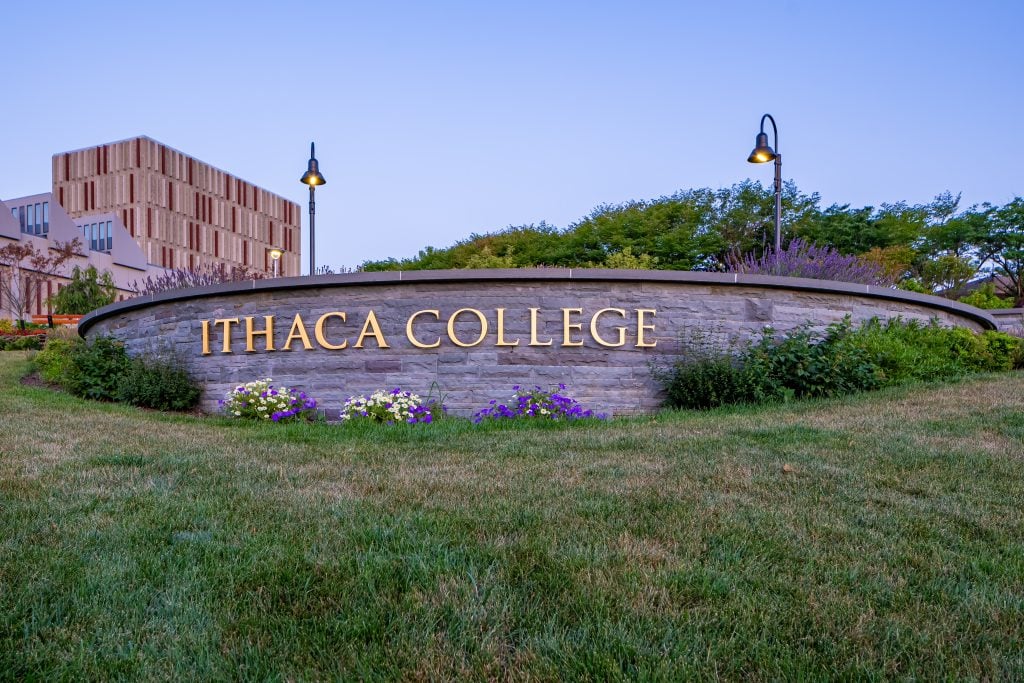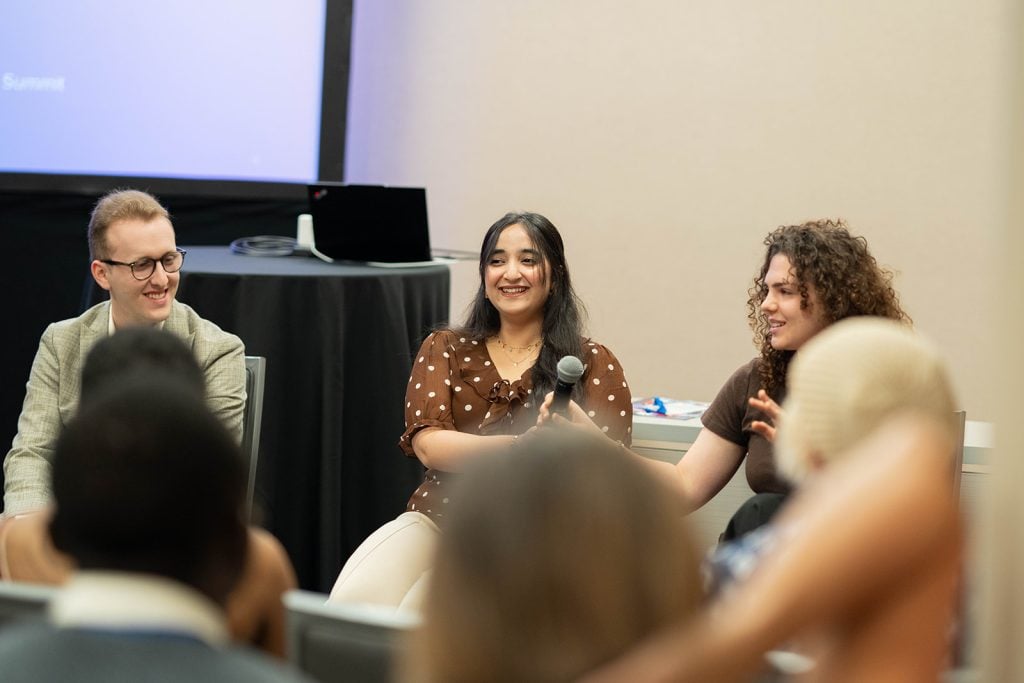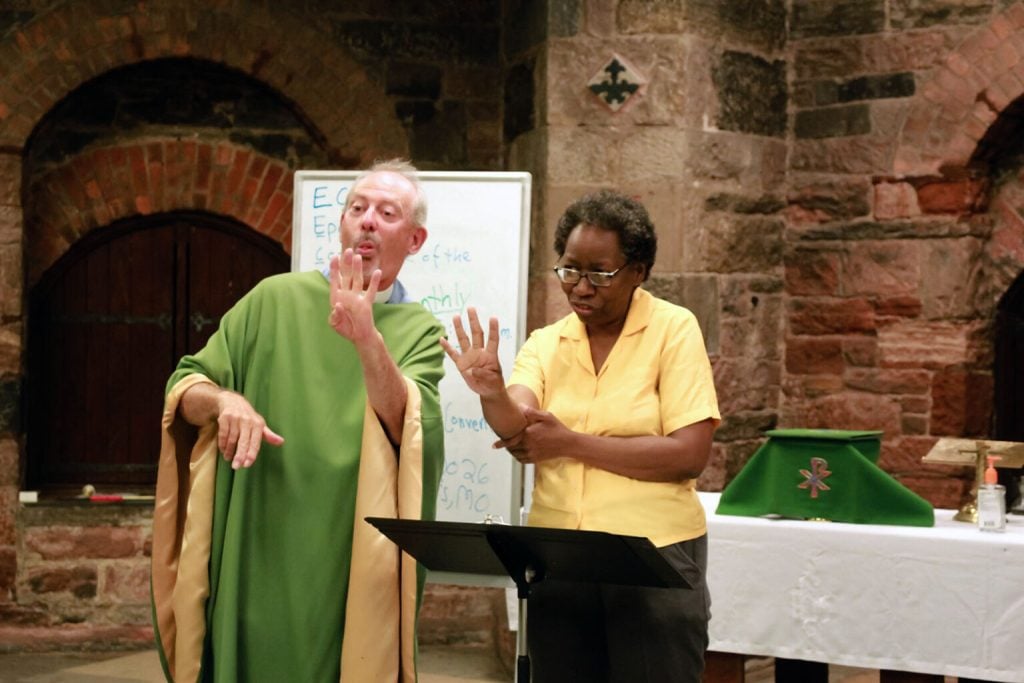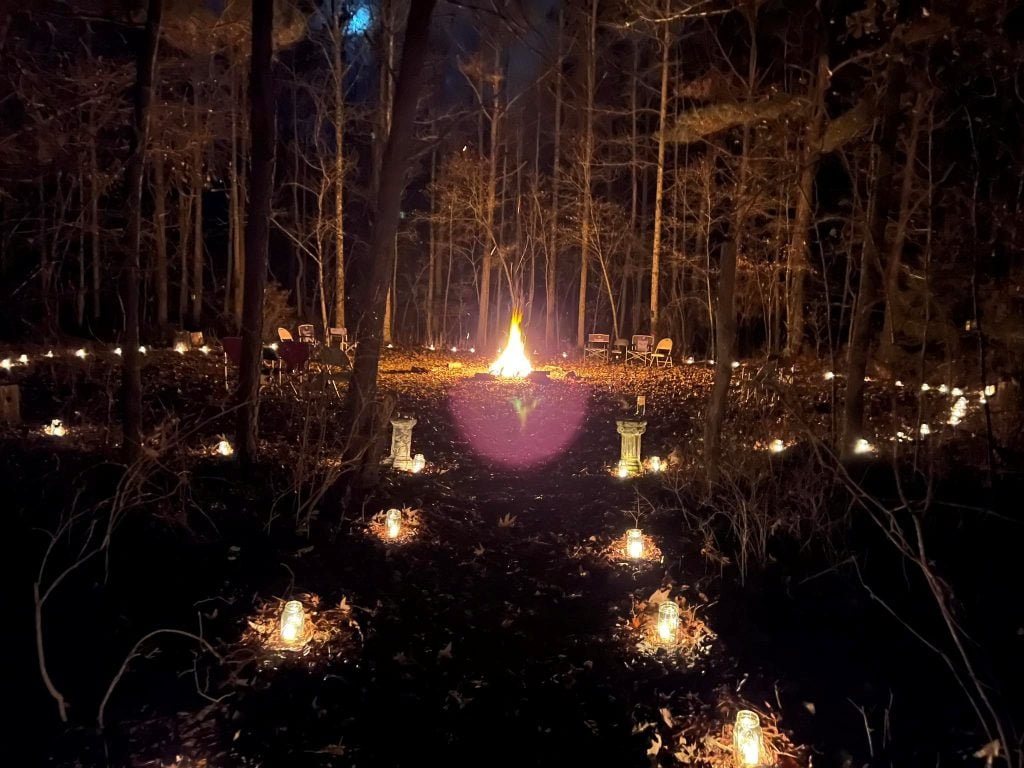At Interfaith America, we know interfaith cooperation isn’t limited to big stages or official programs. It happens every day.
It happens around dinner tables, in classrooms, at community events, and on soccer fields. People practice interfaith cooperation through respectful conversations, acts of compromise, and thoughtful gestures.
At it’s core, interfaith cooperation means respecting others, building relationships, and working together across lines of difference. It’s grounded in values like respect, empathy, and mutual understanding.
We’re gathering stories from people who are living these values. People like you.
Want to share your own story?
You can submit a written piece (200-500 words) or a short video through this online form. With your permission, your story may be featured in social media spotlights, newsletters, or other educational resources.
Each story is a reminder that interfaith work isn’t just possible. It’s already happening all around us.
We invite you to read these stories, feel inspired, and consider sharing your own.
Abbie Haug’s Interfaith Story
Program Manager, National Bridgebuilding Initiatives, Interfaith America

I grew up in Fargo, North Dakota, a fairly homogenous and predominantly Christian community, but have always been exposed to religious diversity. My two (foster) sisters have always been a huge part of my life, but it wasn’t until late elementary school that I really learned how they came to be part of my family—it was around then that I learned they came to the U.S. fleeing religious persecution during the Bosnian War and that the burn scars on their hands were from a conflict zone they had been trapped in due to their religious and ethnic identity. I couldn’t understand how such a thing was possible and how, at the same time, my own religious community could feel like a loving and strong community. I still have so many of the same questions, but as I’ve gotten older, I’ve also been able to learn so much about religious diversity and how engaging with that diversity is key to creating a safe and connected society.

Throughout my entire life, my sisters have not only given me endless laughs, love, and dance lessons, but also gave me the opportunity to be curious about another faith and another culture. Because of them, I grew up around different languages, unfamiliar foods, and had the opportunity to discover just some of the beauty within Islam—the ritual of the call to prayer, the dedication during Ramadan, and the generosity embedded in their beliefs.
Ultimately, knowing and loving them has broadened my understanding of the world, deepened my own faith, and shown me the expansive joy that can be found in connecting across difference. From the time they came to my girl scout dances to my recent graduate school graduation—I am so grateful for my sisters and all they will continue to teach me!
